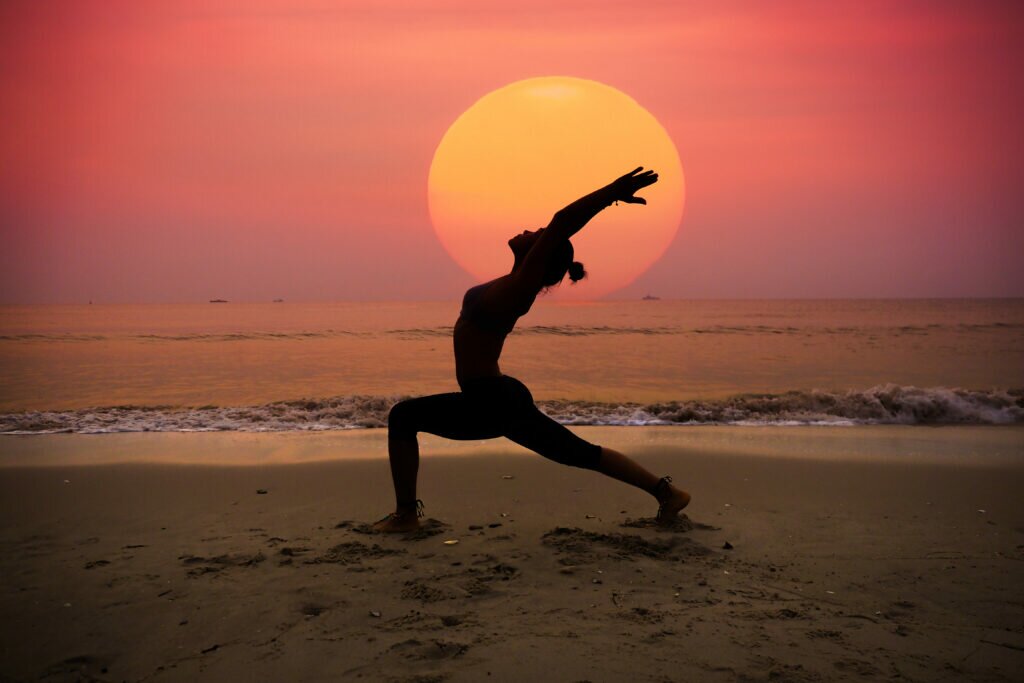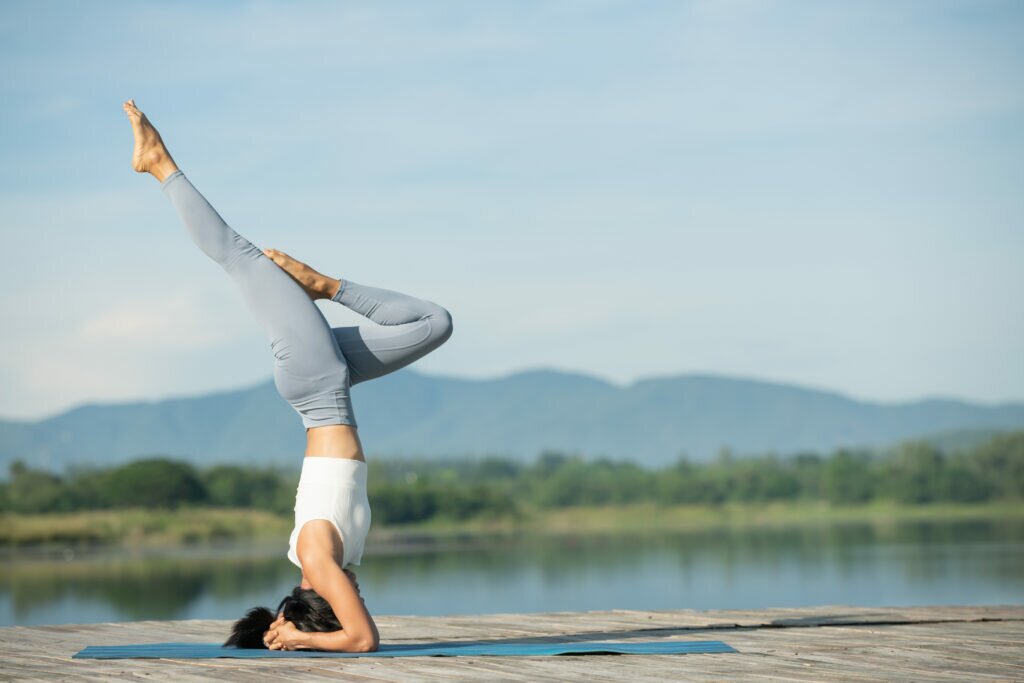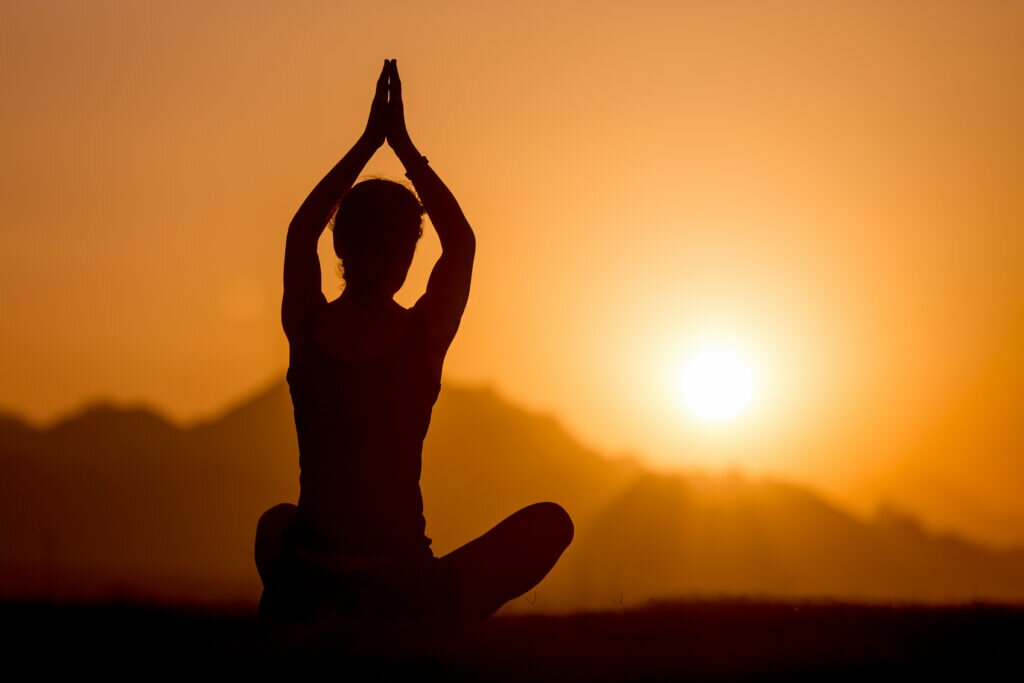Yoga has emerged as one of the most popular forms of exercise and relaxation worldwide. Its physical, mental, and emotional benefits have attracted people from all walks of life. Whether you are a seasoned yogi or just beginning your yoga journey, you might wonder when is the best time to practice this ancient art for optimal results. In this article, we’ll explore the different aspects of finding the perfect time to do yoga, considering your individual preferences and lifestyle.
Factors to Consider for When is the Best Time to Do Yoga
The best time to practice yoga may vary from person to person. Several factors come into play when determining the ideal time for your practice. Let’s explore some options:
Morning Yoga
For many, starting the day with yoga can set a positive tone for the rest of the day. Morning yoga enhances flexibility and helps you feel invigorated. It also promotes mental clarity, preparing you to tackle daily challenges with a focused mind.

Afternoon Yoga
Midday yoga can be beneficial for individuals seeking a break from their busy schedules. It helps release tension accumulated throughout the morning and rejuvenates you for the rest of the day.
Evening Yoga
Evening yoga is an excellent way to unwind and relax after a long day. It can assist in reducing stress and promoting better sleep quality. Engaging in a calming evening practice can also improve digestion and prepare the body for restful sleep.
Listening to Your Body’s Rhythm
Ultimately, the best time to do yoga depends on your body’s natural rhythm and preferences. Some individuals might find that their bodies are more receptive to yoga in the morning, while others may feel more at ease practicing in the evening. Listen to your body and choose a time that aligns with your energy levels and lifestyle.
Discovering the Optimal Moment for Yoga Practice
Determining the most suitable time to engage in yoga involves contemplating the intricacy of the practice and the diversity of the experience. Perplexity relates to the complexity and depth of the yoga session, while burstiness signifies the variance in sentence structures and lengths, which are characteristic of human-written content. In this exploration of the ideal yoga practice time, we shall take into account the type of yoga, individual lifestyle commitments, and the cyclical nature of energy throughout the day. Embracing the rhythmic patterns of the body and acknowledging the impact of external factors will aid in selecting the most opportune moments for one’s yoga journey.
An essential consideration is identifying periods when surplus energy abounds. For some individuals, this might manifest in the morning, imbuing them with enthusiasm before the day’s obligations commence. For others, evening hours, as the day winds down, offer a sense of calm and focus, making it an excellent time for yoga practice. Evaluating interruptions in one’s schedule is crucial; a morning routine might grant a tranquil environment with minimal distractions, fostering mental clarity and an enriched practice. Parenthood may necessitate an early morning choice, where uninterrupted moments are most available.

Benefits of Practicing Yoga Before Sunrise
The traditional perspective lauds the period of “brahma muhurta,” precisely 96 minutes before sunrise, as an auspicious time for yoga. This time frame is believed to cultivate spiritual elevation, inner serenity, and mental lucidity. The pre-dawn ambiance fosters a profound connection to the divine, promoting self-reflection and introspection. Yet, early morning practice poses challenges, as the initial motivation to rise early may wane due to the cold and darkness. Remaining alert during asanas and pranayama at this hour can also prove arduous due to drowsiness.
Practicing Yoga in the Morning
Morning practice presents distinct benefits for early risers, jumpstarting their day and invigorating their bodies and minds. Such sessions foster physical and mental fortitude, enhancing overall well-being and imbuing the day with a sense of determination. More vigorous forms of yoga, like ashtanga or vinyasa, find their ideal moments in the morning when energy and focus peak.
Certain poses, such as backbends and sun salutations, efficiently awaken the body and elevate heart rates. Morning pranayama, conducted with a clear mind and rested body, reaps additional benefits.
Benefits of Yoga in the Afternoon
In contrast, the afternoon provides an opportunity to combat workplace stress and mental fatigue. Yoga practiced during this period serves as a revitalizing pick-me-up, reinvigorating individuals to complete the rest of their day. Less crowded classes during the afternoon offer more personalized attention from instructors, facilitating improved focus on alignment and uninterrupted practice. The afternoon practice serves as a remedy to cultivate mental clarity and productivity, preparing practitioners for the latter part of their day.
Benefits of Practicing Yoga in the Evening
As the day concludes, an evening yoga routine aids in unwinding after daily activities, promoting relaxation and quality sleep. Tense muscles find release, and alignment is realigned after prolonged periods of sitting or standing. Evening practice instills calmness, fostering a composed approach to the following day. For night owls or practitioners favoring gentle forms like yin or restorative yoga, evening sessions provide a serene environment for relaxation and letting go of daily stressors.

What works best for you?
For beginners, establishing a consistent practice requires finding a slot in the daily schedule that minimizes interruptions and fatigue. Experimenting with various times will aid in discovering the most suitable fit. Group practice and goal-setting enhance commitment while incorporating yoga into lunch breaks can alleviate stress and boost energy.
Ultimately, the choice of the best time for yoga is subjective and dependent on an individual’s lifestyle, objectives, and physical state. Mornings offer a serene initiation to the day, while evenings enable a calming wind-down. Evaluating the pros and cons of each time will lead to a well-informed decision, ensuring a rewarding yoga journey in harmony with one’s unique rhythms.
Yoga and Meal Times
The timing of your meals can also impact your yoga practice. Consider the following scenarios:
Yoga Before Meals
Practicing yoga before a meal can be beneficial, as it allows the body to focus fully on the practice without the discomfort of a full stomach. It is advisable to wait for at least 30 minutes after a light snack or 2-3 hours after a heavy meal before starting your yoga session.
Yoga After Meals
Some individuals prefer doing yoga after meals. While practicing immediately after eating is not recommended, gentle yoga poses after a reasonable gap can aid digestion and provide a sense of relaxation.
Yoga on an Empty Stomach
For more advanced practitioners, doing yoga on an empty stomach can deepen the practice and improve focus. However, it’s essential to stay hydrated and avoid intense poses in this state.
Finding Balance with Yoga
Incorporating yoga into your daily routine can be a transformative experience. Here are some tips to find balance and consistency in your practice:
Balancing Different Schedules
Life can be hectic, and finding time for yoga might seem challenging. However, even short and regular sessions can yield significant benefits. Be flexible with your practice and adapt it to your schedule.
Creating a Consistent Routine
Consistency is key to experiencing the full potential of yoga. Find a time that works for you and try to practice at the same time each day. This will help establish a routine and make yoga a habit.
Conclusion
The best time to do yoga ultimately depends on your individual preferences and lifestyle. Whether it’s energizing morning sessions, refreshing afternoon breaks, or relaxing evening practices, yoga offers flexibility to accommodate your needs. Listen to your body’s cues, and let yoga become a harmonious part of your life, benefiting your physical, mental, and emotional well-being.
FAQs
Can beginners do yoga in the morning?
Absolutely! Morning yoga can be an excellent way for beginners to start their day with a positive and mindful approach.
Is it okay to practice yoga every day?
Yes, daily yoga practice is beneficial, but be sure to listen to your body and avoid overexertion.
Can yoga replace a workout session at the gym?
While yoga offers many physical benefits, it’s best used as a complement to other forms of exercise rather than a replacement.
Can I eat immediately after doing yoga?
It’s advisable to wait for a short while after yoga before eating to allow your body to settle.
What if I miss a day of yoga?
It’s okay! Life happens, and missing a day of yoga shouldn’t discourage you. Get back to your practice the next day.

